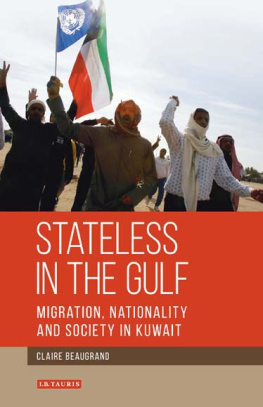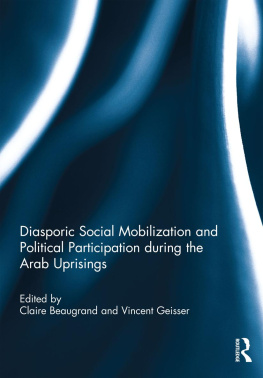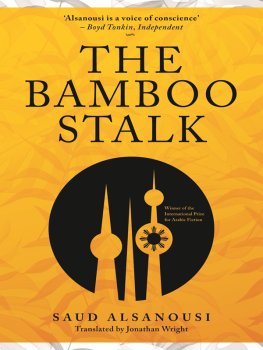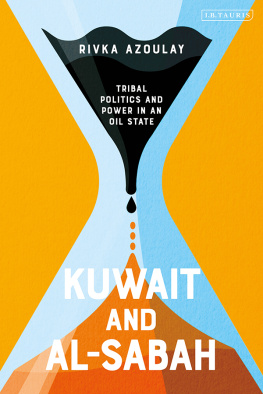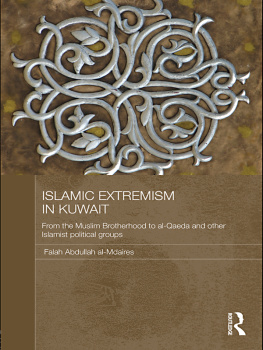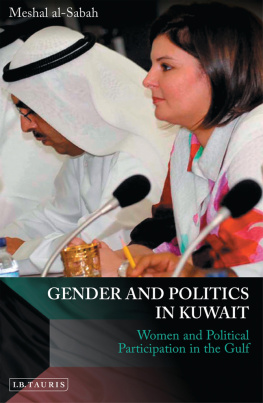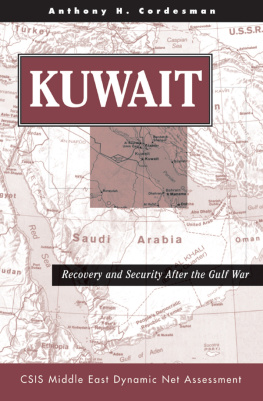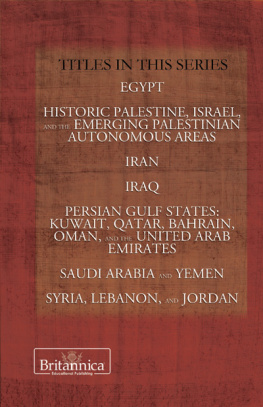
Claire Beaugrand is Gulf Research Fellow at the Institute of Arab and Islamic Studies, University of Exeter. She previously worked as a Gulf Senior analyst with the International Crisis Group and as a researcher at the Institut franais du Proche Orient (Ifpo). She holds a PhD in International Relations from the London School of Economics (LSE).
Full of rich and convincing empirical descriptions, Stateless in the Gulf is an original and welcome contribution to the literature on Kuwait and the Gulf region in general.
Anh Nga Longva, Professor,
Department of Social Anthropology, University of Bergen
This is a valuable and long overdue contribution to the historical and social scientific literature on Kuwait, and by extension the Arab Gulf region. Beaugrand has (quite heroically) tackled a subject that no other English-language scholar has taken on as their singular focus of research.
Farah Al-Nakib, Assistant Professor,
American University of Kuwait
STATELESS IN
THE GULF
Migration, Nationality and Society
in Kuwait
C LAIRE B EAUGRAND

Published in 2018 by
I.B.Tauris & Co. Ltd
London New York
www.ibtauris.com
Copyright 2018 Claire Beaugrand
The right of Claire Beaugrand to be identified as the author of this work has been asserted by the author in accordance with the Copyright, Designs and Patents Act 1988.
All rights reserved. Except for brief quotations in a review, this book, or any part thereof, may not be reproduced, stored in or introduced into a retrieval system, or transmitted, in any form or by any means, electronic, mechanical, photocopying, recording or otherwise, without the prior written permission of the publisher.
Every attempt has been made to gain permission for the use of the images in this book. Any omissions will be rectified in future editions.
References to websites were correct at the time of writing.
Library of Modern Middle East Studies 143
ISBN: 978 1 78076 566 2
eISBN: 978 1 78672 323 9
ePDF: 978 1 78673 323 8
A full CIP record for this book is available from the British Library
A full CIP record is available from the Library of Congress
Library of Congress Catalog Card Number: available
To Professor Fred Halliday
To K.H.
CONTENTS
LIST OF ILLUSTRATIONS
MAPS
Northern Arabias tribes
Old Kuwait City (before 1957)
Shanty areas at different stages
Popular housing in Kuwait
Kuwaits five constituencies
FIGURE
Kuwaits oil revenues, 19682001
TABLES
Number and proportion of biduns in Kuwaits population, 19572013
Nationalities recovered by biduns since 1986
Shanty population, 195775
Percentage of Kuwaiti nationals among the Bedouin shanty dwellers
Kuwait armed forces, as per the IISS Military Balance
Estimation of the ratio between first- and second-degree categories of Kuwaitis in 1975 and 1985
Kuwaits oil revenues, 19682001
Estimates of biduns monthly earnings
Sample of websites dedicated to the biduns
Crimes committed by biduns
PHOTOGRAPHS
abCard issued by the Central System
acBiduns popular housing
LIST OF ABBREVIATIONS
| AI | Amnesty International |
| AOU | Arab Open University |
| CCPR | International Covenant on Civil and Political Rights |
| CEDAW | Convention on the Elimination of All Forms of Discrimination against Women |
| CGH | Comoro Gulf Holding |
| CRC | Convention on the Rights of the Child |
| CSB | Central Statistical Bureau |
| GCC | Gulf Cooperation Council |
| GUST | Gulf University for Science and Technology |
| HRW | Human Rights Watch |
| ICRC | International Committee of the Red Cross |
| INGO | International Non-Governmental Organisation |
| IO | International Organisation |
| KADWV | Kuwaiti Association to Defend War Victims |
| KBA | Kuwait Bar Association |
| KD | Kuwaiti Dinar (KD 1 = 2 for quick calculation) |
| KOC | Kuwait Oil Company |
| KSHR | Kuwait Society for Human Rights |
| KU | Kuwait University |
| KUNA | Kuwait News Agency |
| LIGH | Low Income Group Housing |
| OHCHR | Office of the High Commissioner for Human Rights |
| PAHW | Public Authority for Housing Welfare |
| POW | Prisoner of War |
| UDHR | Universal Declaration of Human Rights |
| UNHCR | United Nations High Commissioner for Refugees |
NOTE ON TRANSLITERATION
This book uses a simplified system of transliteration. It is inspired by the International Journal of Middle Eastern Studies and the Encyclopaedia of Islam.
When authors have published in English or interviewees provided me with their business cards, I have reproduced the English transliteration as it was. Exceptionally, Comorian names follow the French transliteration system.
Names of famous places (Najd), persons (Al-Saud) or current first names (Abd al-Aziz), as well as nouns naturalised into the English language (sheikhs) have not been subjected to sophisticated transliteration but have been kept consistent throughout the book.
All translations are mine.
ARABIC TRANSLITERATION TABLE
Consonants
| (except at the beginning of words) |
| a |
| b |
| t |
| th |
| j |
| h (without diacritics) |
| kh |
| d |
| dh |
| r |
| z |
| s |
| sh |
| s (without diacritics) |
| d (without diacritics) |
| t (without diacritics) |
| z (without diacritics) |
| gh |
| f |
| q |
| k |
| l |
| m |
| n |
| h |
| w |
| y |
| a (in construct state: at) |
Short Vowels: a,u,i
Long Vowels: a, u, i (without diacritics)
Doubled: iyy, uww
Diphthongs: aw, ay or ai
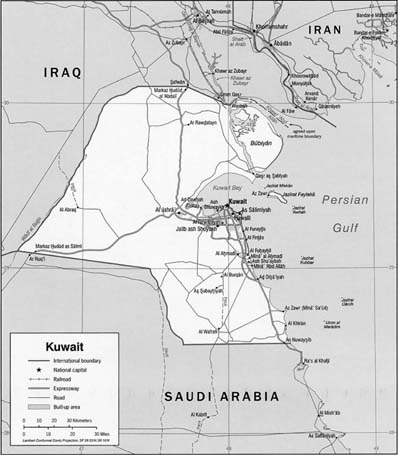
Map of Kuwait
Source: Wikimedia commons (not transliterated as per the Note on Transliteration)
FOREWORD
Alanoud Al Sharekh
Kuwaiti scholar, Research Associate at the London Middle East Institute at SOAS University of London.
A few years ago I was asked to assist a British NGO in verifying the identity of a Kuwaiti bidun who was claiming asylum in the UK. I was asked to provide linguistic expertise on whether the asylum-seekers accent was truly Kuwaiti, an assignment I declined.
This verifying of Kuwaitiness is played out on a daily manner in the country these bidun stateless individuals who have been born and reside in Kuwait and claim to be citizens of it, but who do not have the qualifying documents to prove themselves so left behind. The argument can be made for its relevance from a security perspective, and not just in the UK. In Kuwait, many of those who work on the nationalisation issue within the government have cited ongoing security concerns with many claimants from the
Next page
